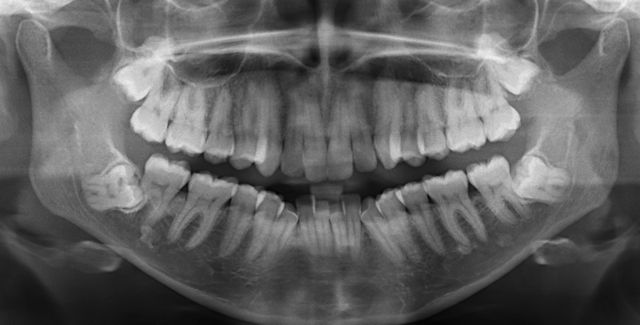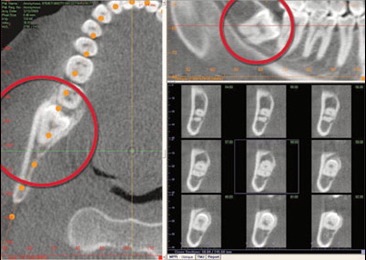
Preparing for
Appointment
Schedule an Appointment
About Appointments and Office hours
For appointments, please call our office at 301.654.7070 between hours of 8:00 and 5:00 pm. You may also request an appointment online. For emergencies after hours or weekends, call us at 301.654.7070 and follow emergency instructions to reach Dr. Kazemi. He’ll contact you directly within a few minutes.
To Make an Appointment
For Appointments, call us at 301.654.7070 or register online. We offer same day appointments for emergencies.
Practice Hours
Monday to Friday from 8:00 AM to 5:00 PM. Saturdays by special arrangements only.
Available 24 hours a day for emergencies.
Keeping You on Time
Your time is important to us. With our “3-minute” rule you will be seen on time or within 3 minutes of your appointment.
Cancellations
Your appointment is specifically reserved for you. While unforeseen circumstances may come up, please schedule your appointment carefully to avoid cancellations.
X-rays and Diagnostic Imaging
X-rays are necessary for proper diagnosis and planning for your surgery. If you have existing X-rays from your dentist or physician, you may bring them with you or send them to us electronically via our ‘contact us’ form. You may also request your dentist to send them directly to [email protected]. We can obtain the necessary X-rays in our office. We utilize digital technology for all X-rays with minimal radiation.
Important notes on existing X-rays:
- X-rays must be within 6 months of date of your surgery
- They must be of good quality and adequate diagnostic value .
Cone Beam CT Scan (CBCT)
Cone beam CT scan (CBCT) is a 3-dimensional imaging X-ray that provides cross-sectional views of vital structures and their relationship to each other. CBCT is indicated for all dental implant procedures, bone grafting procedures, some teeth extractions, corrective jaw surgery, TMJ, jaw cysts, and other forms of bony pathology.
Referral Note / Recommendation letters
A referral or treatment recommendation letter is necessary from your dentist or physician, indicating the treatment being requested. This is a medico-legal document and an important part of the communication between our office and your doctor to assure everyone is aligned with the purpose of your treatment. If you were given a written referral from your dentist or physician, please bring with you to your appointment. The referral form may also be submitted via:
- Online referral form from your dentist or physician
- Fax referral form to (301) 654-7050
- Paper referral form (Print here)
Referral Letter From Your Dentist
If you were directly referred by your dentist or physician, they must provide us with a referral form indicating exact nature of treatment being requested
Treatment Recommendation Letter
A treatment recommendation letter may be sent if you were recommended to us by a friend, family, the community, or via online search, and have recommendations from your dentist or physician on a specific treatment
Medical Records
If you are obtaining evaluation or treatment pertaining to an existing problem with history of previous treatments or evaluations, please obtain your medical / dental records and bring them with you. There include records of previous treatments, X-rays, and recommendations from other doctors.
Length and Number of Visits
The number of visits depend on the type of procedure and its complexity. If you cannot take too much time off from work or school, then you can pick the All-in-One visit. This way you can have your evaluation and surgery all on the same day. If you prefer to meet the oral surgeon, learn about the surgery, visit the office to become more comfortable, and discuss treatment options prior to surgery, you can choose the All-in-Two visit option.
Three types of visits:
- Evaluation: Typically 20 to 30 minutes, when X-rays are taken, an exam is given, and your oral surgeon discusses the recommended surgery and anesthesia, and reviews consent forms, pre-operative instructions, and prescriptions. The financial coordinator also discusses fees and payment options.
- Surgery: Typically 20 to 30 minutes for all four wisdom teeth to be removed followed by 30 to 45 minutes of recovery from anesthesia. Additional time may be required for more complex wisdom teeth extractions.
- Follow up appointment: Usually a five-minute visit to evaluate healing, remove sutures if necessary, and give other recommendations for continued healing.
All-in-One-Visit:
You can arrange your evaluation and surgery all on the same day, and dissolvable sutures can be placed so there is no need for a follow-up visit. A telephone or email follow-up is usually adequate. This is suitable if you have limited time, especially for students who have to return to school, have exams, work, or other responsibilities that make it difficult to take time off.
- Necessary forms are completed prior to your visit via website or fax.
- On the day of your appointment, necessary x-rays are taken, consultation is done, and surgery is completed as planned- all on the same day!
- In 5-7 days, the oral surgeon will check up on your progress by phone or email.
Who is ideal for the All-in-One Visit?
- Healthy patients with no need for special medical precautions.
- Non-complex impacted or non-impacted wisdom teeth (i.e. no major cyst, pathology, or severe and unusual impactions)
- No significant financial assistance necessary (i.e. insurance work up, payment plans, etc.)
- You are comfortable with information provided online and by phone, and have good confidence in the recommended oral surgeon.
- Multiple visits are difficult due to limited time or distance.
All-in-Two-Visits:
Having the evaluation and surgery on the same day may not be for everyone. Some patients might want a separate evaluation or follow-up appointment to make sure everything is healing well.
You might consider a separate evaluation appointment if:
- You are very anxious and meeting the oral surgeon and the staff might help put you at ease.
- The wisdom teeth are highly complex in nature (e.g. deeply impacted or malpositioned teeth, presence of cysts or other pathology).
- You have a lot of questions or are anxious about the surgery or anesthesia and want to make sure you have thoroughly reviewed them with the surgeon prior to your surgery.
- You have special financial needs or need assistance with insurance, payment plans, etc.
You might consider a separate follow-up appointment if:
- You are able to return to office in five to seven days for a routine check.
- Parents have flexibility to bring their teenagers back for suture removal and a quick check-up. No need to accompany patients older than 18.
- The surgery was a long or difficult, so the oral surgeon recommends a follow-up to evaluate healing.
All-In-Three-Visits:
Evaluation, surgery, and follow-up visits are sometimes necessary on different days. This is recommended for complicated wisdom teeth or when the surgery is combined with other procedures such as dental implants or biopsies. A second follow-up visit may be recommended as necessary.
Financial Preparation
To help you prepare for your planned procedures, we will provide you with a detailed treatment plan and fees and payment options to make it possible. Our financial coordinator will review the fees and payment options during your consultation and assist you with any payment plans that meet your needs. If you are planning consultation and surgery on the same day, please come prepared for payment as it is due on day of service. If you need payment plans or insurance benefits, let us know. We’ll be happy to assist you before your scheduled appointment.
What to Expect
Day of Evaluation
Upon your arrival, you will register, if not already completed online. You will be then escorted to a evaluation room where you will meet Dr. Kazemi and his team. We’ll discuss your needs, take appropriate diagnostic X-rays, review findings, and recommend treatments that best meets your needs. All aspects of the procedure are discussed including how it done, alternative treatment options, and all risks and benefits.
Our financial / treatment coordinator then will discuss the related treatment fees and assist you with payment options to make it possible. Appropriate consent forms are reviewed, pre-operative instructions are discussed, and a complete pre-operative packet is prepared. Your surgery is scheduled with a reservation deposit. We’ll also provide you with necessary prescriptions so they can be filled prior to day of surgery. Alternatively, you may obtain the prescriptions at our office.
Day of Surgery
Our coordinator will greet you, answer last minute questions, and complete any remaining forms or transactions. We’ll then escort you to the treatment room. If you are having IV sedation, nitrous oxide gas is given before start of the IV.
Monitors are then placed, including blood pressure cuff, pulse oximeter to measure oxygenation, EKG, capnography, and pre-cordinal stethescope. Supplemental Oxygen is administered through a nasal mask along with lots of smiles and tender care from the team. The anesthesia medications are given through the IV and a minute or two later, you’ll feel quite tired and sleepy. Once you are completely asleep, the surgeon administers the local anesthesia and then the procedure is begun.
A rubber bite block helps to support your jaw during surgery and also keeps your mouth open if you are being sedated. It also protects your jaw joint (TMJ) by preventing excessive pressure during surgery. The surgeon then performs the surgery as planned, with the assistants’ help.
Necessary sutures are placed which are removed in 7-14 days. If you cannot return for suture removal, re-absorbable sutures are placed instead.
You shouldn’t worry about waking up in the middle of surgery. Anesthesia medications are given as needed to make sure you remain asleep and comfortable. At end of surgery, you will awake to a tap on your shoulder and a gentle voice saying: “Hi, can you open your eyes?”
The surgeon will reassure you that surgery is finished and everything went well. Monitors and IV are removed and you are escorted to the recovery room. A few minutes later, your loved ones can keep you company as you recover from the anesthesia.
Immediately following surgery:
If IV sedation was administered, you will awaken shortly after surgery and be escorted to the recovery room. Your mouth will feel numb from the local anesthesia which will help keep you comfortable and pain free. You’ll bite down on gauze to help reduce bleeding, and the gauze will be replaced periodically by the assistant. Most people rest for 20 to 30 minutes before being ready to go home. During this time, you will become increasingly awake and alert and gradually be able to standup by yourself. Rarely, nausea or vomiting may occur. If it does, it often resolves spontaneously. You may be given some pain medication which will begin to work as the numbness wears off. This helps to keep you comfortable in the coming hours.
When you are ready to go home, the assistant reviews detailed post-operative instructions with you and your escort, both verbally and in written form. You will be given a home-care kit that contains gauze, ice packs, written instructions, office contact information for questions or emergencies, and an appointment card for follow-up visit. You are then escorted to the car.
Day of Follow-Up
Usually a five minute visit to evaluate healing, remove sutures if necessary, and give other recommendations for continued healing. Other follow-up appointments may be recommended and scheduled accordingly.


